Just a few months ago, in December, 2013, together with actress Joanna Moro, Ivan Vyrypaev was recognised with a double medal of both the Polish and Russian Foreign Ministers. He received it in recognition of special merits in the field of promulgating mutual proximity and understanding between the two countries’ societies. Russian Foreign Minister, Sergey Lavrov stated upon the occasion that it was especially important that the award was presented to a Russian playwright "whose works are staged in Russia, Poland, and even farther", while underscoring that "on a personal level, the director embodies not only Polish-Russian friendship, but also Polish-Russian love." Upon receiving the award in the name of her husband, Karolina Gruszka read out an official letter of thanks from Vyrypaev. In it, he stated:
As long as we think, that I, a Pole, and speaking with a Russian, and I am trying to resolve important problems with him, as long as the dialogue takes place on this kind of a level, nothing will change. It is not a Pole talking with a Russian, but one human with another human. One human lives on Polish territory, the other on Russian territory, a third one, on the lands of Iran, and a fourth in the land of the United States, and all these peole together live on the planet Earth.
(…)
My daughter is 1,5. Mom speaks Polish with her, and dad speaks Russian with her. And do you think that she lives in two different countries with two different languages? For her there aren’t two countries and two languages. For her, there is one world.
Konstantin Bogomolov
Another young Russian theatre director who has been granted a presence on the Warsaw stages in Konstantin Bogomolov. In January 2014, he has taken a piece by the controversial Vladimir Sorokin and staged it at the National Theatre in Warsaw.
Konstantin Bogomolov’s plays, Ideal Husband and Lear. Comedy, have also been presented to Polish audiences in 2013 in Warsaw. They were transmitted live from Moscow during the closing event of the Da! Da! Da! festival of Russian culture in Poland, which was produced by culture.pl
Daniel Olbrychski
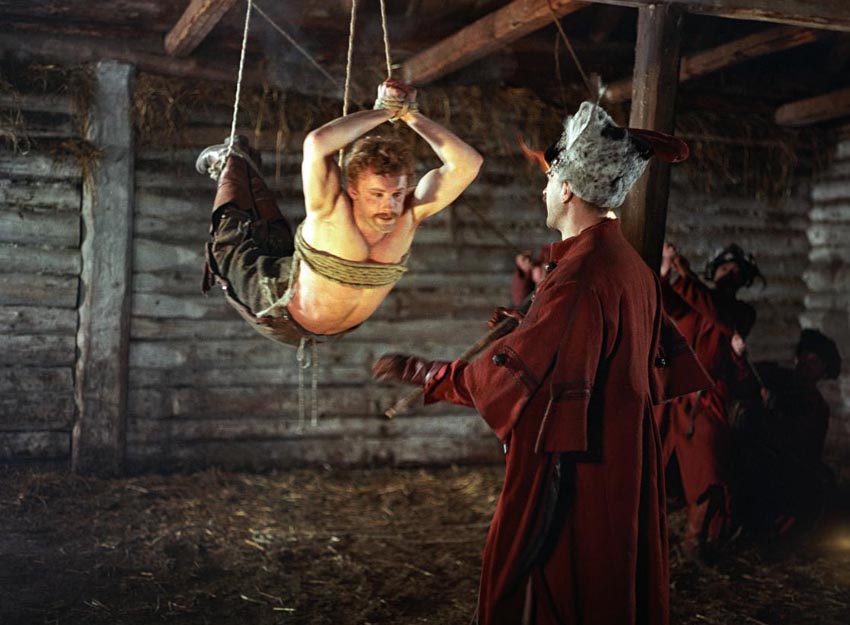 A still from "The Deluge" directed by Jerzy Hoffman, 1974. Daniel Olbrychski and Arkadiusz Bazak, Filmoteka Narodowa/www.fototeka.fn.org.pl
A still from "The Deluge" directed by Jerzy Hoffman, 1974. Daniel Olbrychski and Arkadiusz Bazak, Filmoteka Narodowa/www.fototeka.fn.org.plOne of the most beloved actors of the Polish stage and screen, Daniel Olbrychski played in dozens of films, collaborating with some of the most significant Polish directors, including Andrzej Wajda, Krzysztof Zanussi and Jerzy Hoffman. He frequently worked overseas, collaborating with Volker Schlöndorff, Claude Lelouch. However, Olbrychski has always expressed a particular love and passion for Russia. On numerous occasions, he performed at the stage of the Teatr Polski in Moscow. He has also starred in the super-production The Barber of Siberia, directed by Russia’s cinematic legend, Nikita Michalkov. He is popular in Russia, and has recently starred in the Turkish Gambit, as well as an episode of the Legend nr. 17 series about the famous Russian hockey player Valery Kharlamalov.
In 2007, Daniel Olbrychski was honoured with the Konstantin Stanislavsky award, presented annually in Russia to prominent foreign actors. He thus recalls his encounter with Russian President Vladimir Putin at the time of the award’s presentation:
Putin told me that he grew up on Polish films, especially those of Wajda and Hoffmann. I presented him with my little booklet on Wysocki, which actually came out in 1990, before the fall of the Soviet Union, and I said to him "It’s a brief little read, just enough to make the plane journey to Warsaw a bit shorter". He looked at me and said "Mr. Daniel, an A+ in diplomacy".
Olbrychski has recently expressed his concern with the political situation with decided to interrupt an engagement in Moscow, the home of what he called "the beautiful language of Pushkin, Tolstoy, Chekhov and my friends Okudzhava and Vysotsky".
Vladimir Vysotsky is the full name of the artist in question. And the little booklet mentioned by Olbrychski is a set of his memoirs and an account of meetings with the artists. Vysotsky was an absolute icon of his time in Russia, a singer, poet, and an actor. He was an iconic bard of the East, with cult following and controversial splits surrounding his art even among the Soviet dignitaries. Brezhnev, for example, was quoted as asking for his music while undertaking treatment in a hospital. Daniel Olbrychski was a devout fan of the bard as well, and many Poles felt this devotion. As Russian language classes were compulsory at school, the young generation of Poles took to the poetic rebels of the East almost naturally, and adored the bards Vysotsky and Bulat Okudzhava, who unravelled the mysteries of the Russian soul for them.
The Polish city of Kalisz is in fact home to a Vladimir Vysotsky Museum.
Barbara Brylska
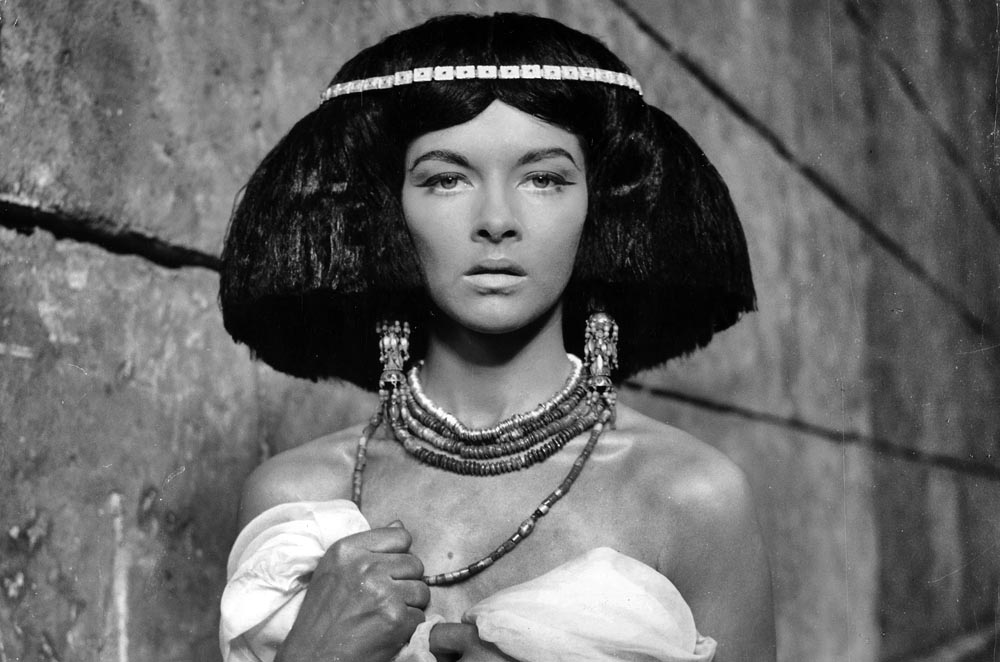 Barbara Brylska in a photo from a screen test for "Pharaoh" directed by Jerzy Kawalerowicz, 1965, photo: Forum
Barbara Brylska in a photo from a screen test for "Pharaoh" directed by Jerzy Kawalerowicz, 1965, photo: ForumBorn in 1941, Barbara Brylska became famous in Poland for her role in the 1966 superproduction by Jerzy Kawalerowicz entitled The Pharaoh. (The film was recently digitally remastered as part of the project Martin Scorcese Presents 21 Masterpieces.)
Brylska became a star in the Soviet Union after she was cast in a cult Soviet TV film by Eldar Ryazanov, called Irony of Fate (1975). Her performance was enhanced by a collaboration with the popular Russian singer, Alla Pugacheva, who delivered enchanting renditions of love songs for Brylska's character. In 1976, she was elected the most popular actress in Russia according to several polls, she also won the State Prize of the USSR (1977). In 1977 she was a member of the jury at the 10th Moscow International Film Festival.
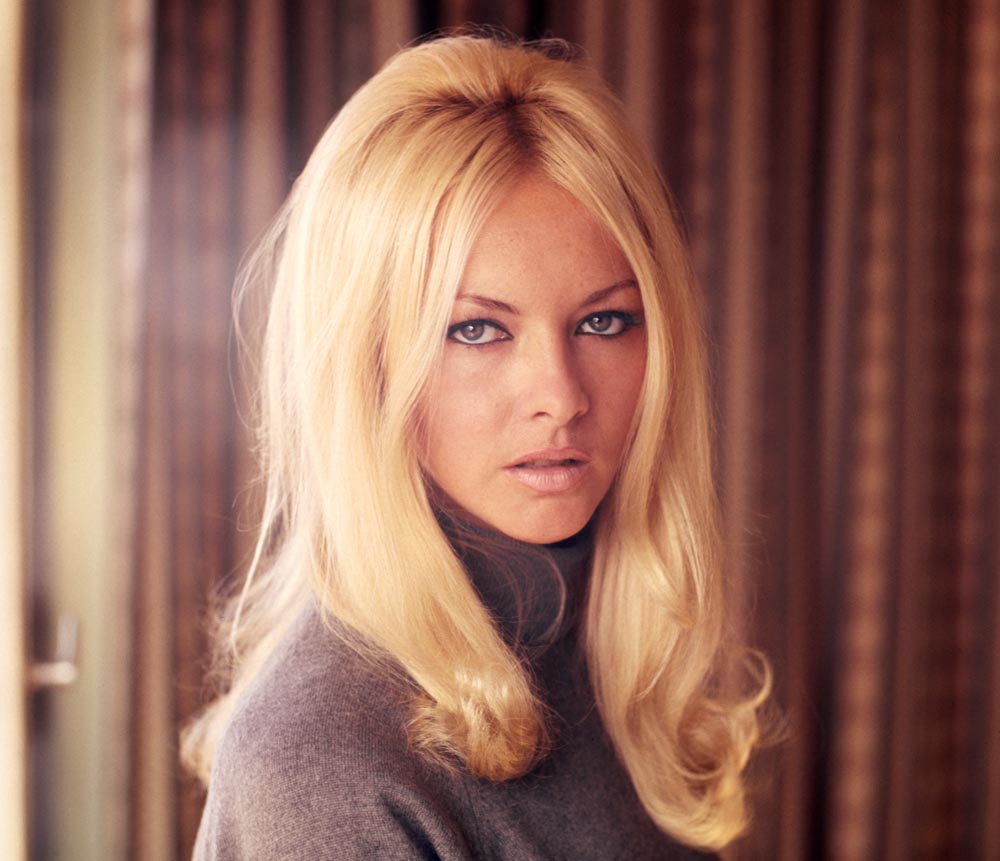 Barbara Brylska, photo: Andrzej Wiernicki / Forum
Barbara Brylska, photo: Andrzej Wiernicki / ForumThe Polish actress – who has claimed that her Russian popularity resulted in jealousy from the Polish milieu– was always highly regarded for her classic elegance, beauty, intelligence, and effortless style. In 2000, after a long hiatus, Brylska played a supporting role in a grotesque film Down House (2000), then made her stage debut in Moscow, in popular play Quartet in which she played alongside Svetlana Kryuchkova and other Russian actors. For two seasons form 2000-2002 she returned to the Polish audiences as Barbara Burska, a recurring character in the popular Polish TV series Na dobre i na zle. In 2003, Brylska played in a Russian comedy, Casus belli, (dir. Igor Ugolnikov).
Brylska was also cast as he aged Nadya in the 2008 Irony of Fate: The Sequel.
Katarzyna Kobro
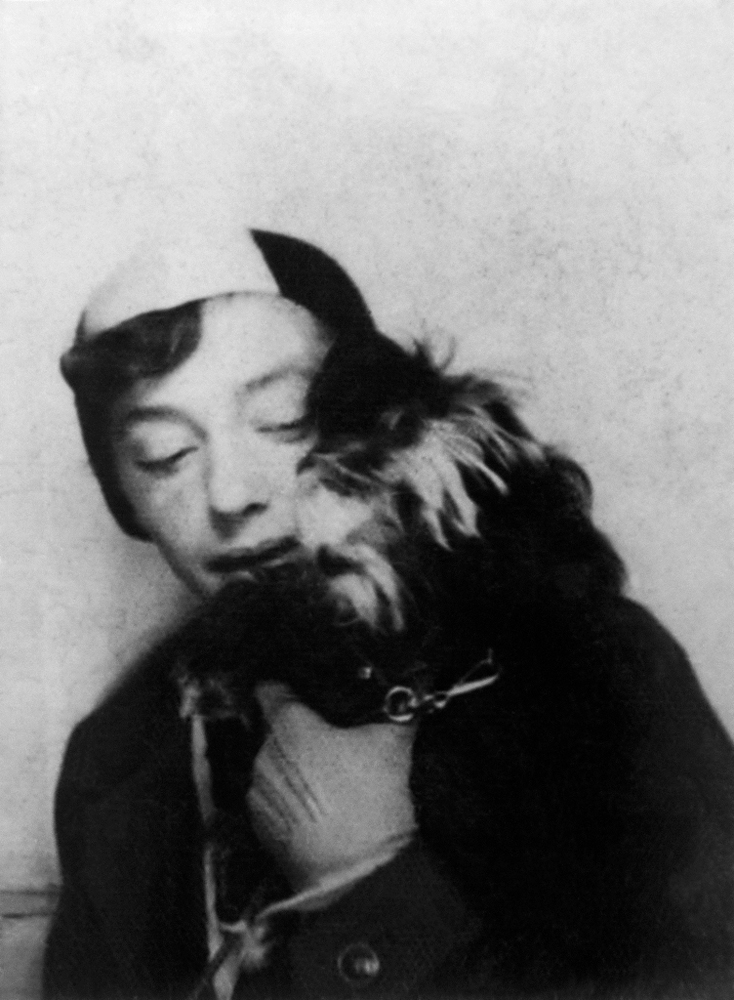 Katarzyna Kobro, ok. 1930-1931,
Katarzyna Kobro, ok. 1930-1931,
photo: Muzeum Sztuki w ŁodziBorn in 1898, Kobro was a Polish sculptor of Russian, Latvian and German origin. She spent her early years in Riga, then moved with her family to Moscow in 1915. From 1917 to 1920 she studied at the Moscow School of Painting, Sculpture and Architecture. She was a member of the Moscow Union of Artists with Kasimir Malevich, Olga Rozanova, Vladimir Tatlin and Alexander Rodchenko, among others.
Under the influence of Constructivism she rejected individualism, subjectivism and expressionism, and instead postulated the absolute objectivism of form. Her main aim was to build an abstract work of art, based on universal and objective rules discovered through experimentation and analysis. Her sculpture conceptualized infinite space, which was to be seen as uniform and without focal or reference points (such as the origin of a coordinate system). Therefore, she strove to organize space in such a way that it would not be divided into space enclosed within form and excluded from it, but instead for the work to coexist with space and to allow space to penetrate it.
Not every aspect of Kobro's life has been documented; a lot of it remains cloaked in obscurity, and determining the facts requires some guesswork. She nonetheless spent the rest of her life from 1922 onwards in Poland, and was also granted a Polish citizenship in 1924.
She probably met Władysław Strzemiński in 1916 in a Moscow hospital. Nowadays she is considered one of the most tragic figures in the history of twentieth-century Polish art. A war exile because of her German-Russian origins, she lost some of her sculptures when they were tossed onto the scrap-heap during the war. Her dramatic post-war separation with Władysław Strzemiński made it necessity for her to earn a living to care for her child. She also had to defend herself in court against the accusation of "deviating from the Polish nationality", having signed the so-called "Russian list" during the war. All of this, as well as her final battle against a terminal illness, sapped her creative forces during the last years of her life. As result, Kobro has long remained in the shadow of Strzemiński, on the margins of the avant-garde art scene in Łódź.
Then throughout the 1980s and 1990s, the situation changed. The artist's biography began to interest both critics and researchers (or rather, the biographies of the two artists, Kobro and Strzemiński), leading to a feminist reading of her life and work along with various other interpretations. The 1980s and 1990s was also a time when a number of exhibitions began to showcase Kobro's art, especially international exhibitions
Kazimir Malevich
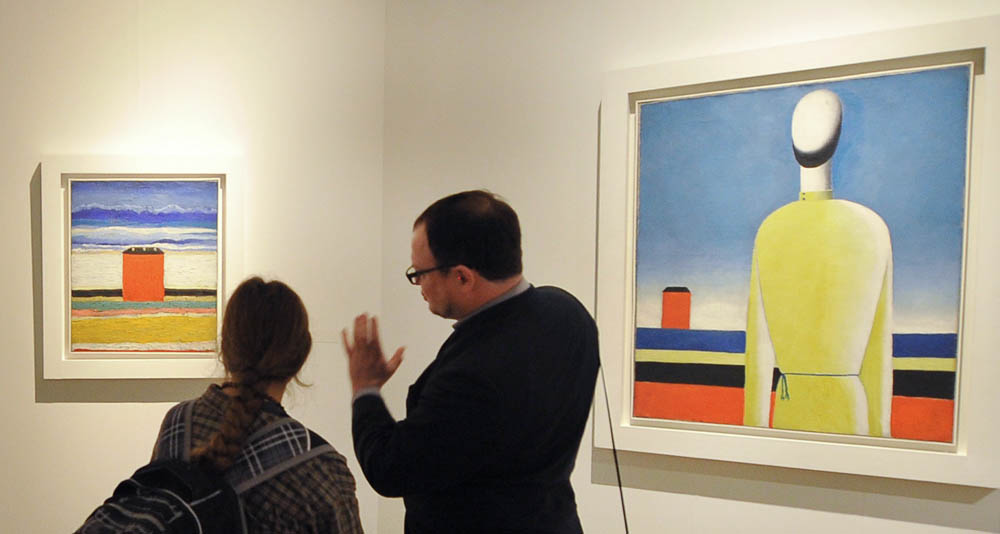 Visitors looking at a painting Torso in a Yellow Shirt (R) by Malevich at the opening of the Kazemir Malevich, photo: Shamukov Ruslan / ITAR-TASS / Forum
Visitors looking at a painting Torso in a Yellow Shirt (R) by Malevich at the opening of the Kazemir Malevich, photo: Shamukov Ruslan / ITAR-TASS / ForumKazimir Severinovich Malevich, one of the most influential painters of the early 20th century, is hailed as a pioneer of modernism and abstract art through works such Black Square. Due to the fact that he was born in the 19th-century Russian Empire, Malevich is commonly recognised as Russian, but his family were in fact Polish and at birth he was christened Kazimierz Malewicz.
His dual upbringing meant that Polish and Russian were both native languages for Malevich. But, noticeably, he would sign works Malewicz, not Malevich, and there is a record of him travelling to France on a visa where his nationality is recorded as Polish. This sort of confusion of nationality was common in the late 19th century. Malevich was born near Kiev which used to be part of the Polish-Lithuanian Commonwealth before being taken over by Russia, but is today part of Ukraine. With these sorts of moving borders, it’s unsurprising that every country can claim a link to one of art’s most important figures.
Malevich’s first foreign exhibition was in 1927 in Warsaw’s Hotel Polonia Palace, where as one might expect, he was greeted jubilantly by Poles who treated him like a countryman returning home. This Polish legacy has lasted decades to this very day – Malevich’s descendants in 21st-century New York founded a not-for-profit organisation specifically geared towards promoting their ancestor’s Polish roots. They even use the Polish version of his name in their official title to emphasise their argument: The Rectangular Circle of Friends of Kazimierz Malewicz.
Anna German
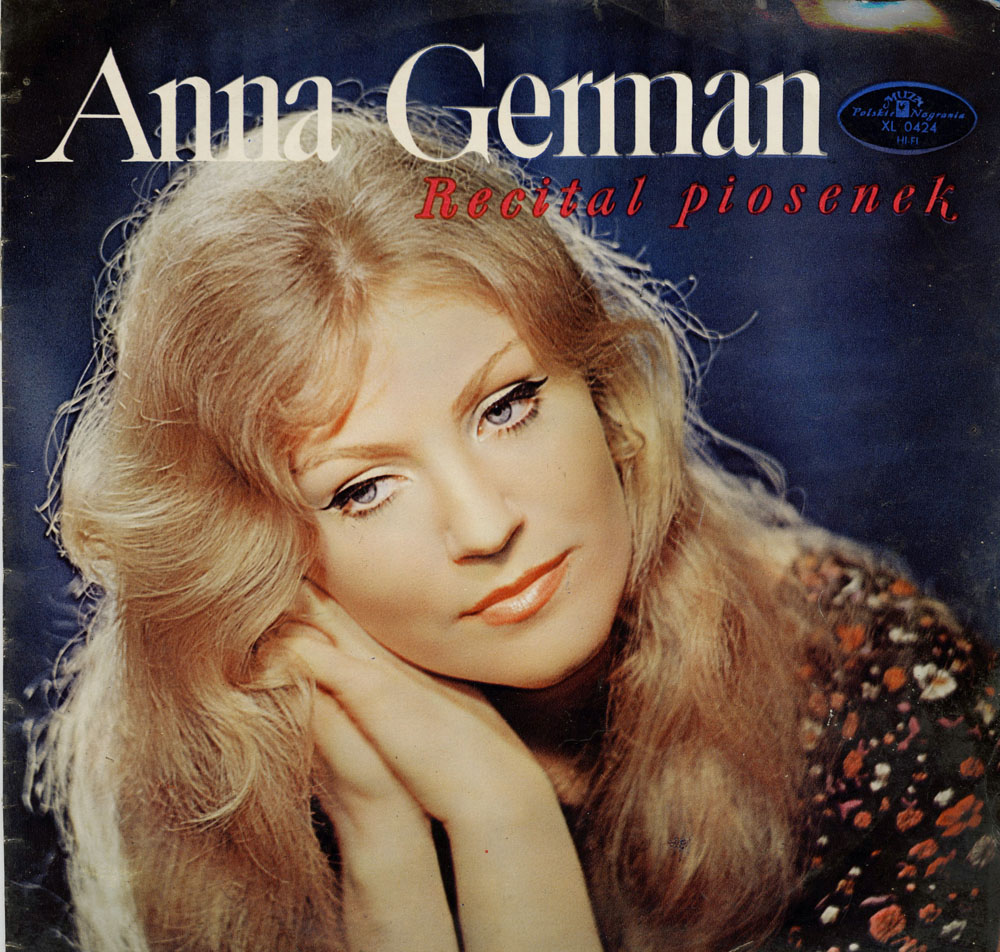 Anna German, photo: FoKa / Forum
Anna German, photo: FoKa / ForumAnna Wiktoria German (1936 – 1982) was a Polish singer immensely popular in Poland and in the Soviet Union in 1960s-1970s. Educated in geology, German was also capable of singing in 7 different langauges. The genre she worked in was sung poetry, and she authored the majority of her songs’ lyrics. German released over a dozen music albums with songs in Polish, as well as several albums with Russian repertoire.
The very last album she recorded was in Russian, in 1980. (The last one in Polish was made in 1979). In 1980, her artistic merits were honoured with the Order of Polonia Restitutia. Anna performed in the Marché international de l'édition musicale in Cannes, as well as on the stages of Belgium, Germany, USA, Canada and Australia. In the last years of her life she composed church songs. She died of osteosarcoma in 1982, and was buried in Warsaw. In 2001, six of her Polish albums were reissued on CDs. In recent years many compilation albums of her songs have also been released in both Russia and Poland.
Another recipient of the 2013 joint Diplomas of the Ministers of Foreign Affairs of Russia and Poland, apart from the aforemention Ivan Vyrypaev was the actress Joanna Moro, who impersonated the dinger in a Polish-Russian TV series entitled Anna German. Sergey Lavrov, upon presenting the award for "merits in the area of reinforcement of mutual understanding and approximation of Russian and Polish societies" said that the actress had "enchanted the Russian audience by her performance as Anna German, whom we love so much." He also added that "more than 22 million people watched the film with Joanna Moro in Russia. I am delighted to issue this diploma to this wonderful actress."
Ewa Demarczyk
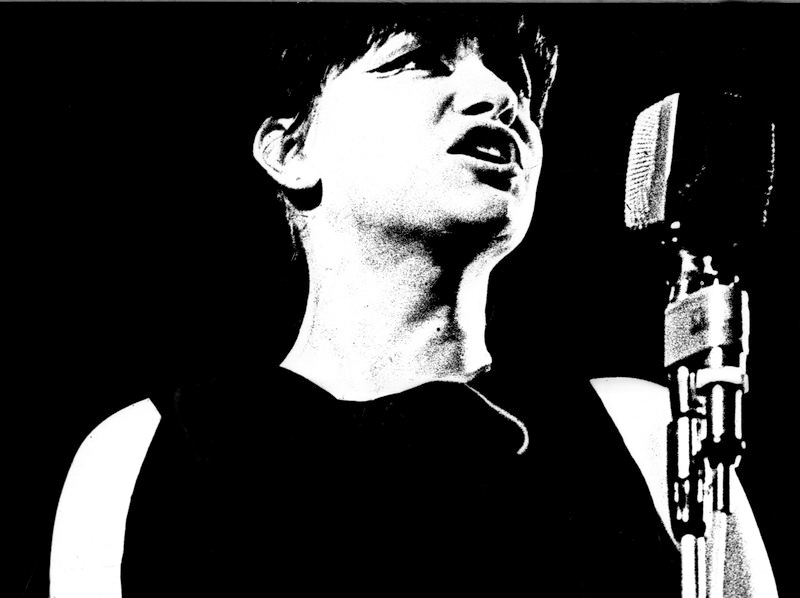 Ewa Demarczyk, photo by: Marek Karewicz/East News
Ewa Demarczyk, photo by: Marek Karewicz/East NewsBorn in 1941 in Kraków, Ewa Demarczyk is a Polish singer, recognized as one of the most talented and charismatic singers in the history of Polish music. She is the recipient of numerous awards, among them the honorary award of the Opole Festival and the Polish state medal, the Order of Polonia Restituta.
She is praised for her unique interpretations, expression, and unusual stage personality. In the 1960s, she was often compared with Édith Piaf. In Poland, the singer would frequently be referred to as "the dark angel". In her performances, Demarczyk unites both dramatic theatrical expression and vocal art (she is a graduate of both a drama school and conservatory, where she studied the piano). Every song she performs is in fact a short musical drama of enormous intensity.
Demarczyk’s first very famous album was the 1967 Ewa Demarczyk sings the songs of Zygmunt Konieczny.
In 1974, two years after parting with the iconic Piwnica pod baranami cabaret, Demarczyk issued another album, including some new Polish songs and additional four Russian-language versions of her previously known hits. It was released in Russia by the state-owned label Melodiya and sold in excess of several million copies.
Author: Paulina Schlosser, 14/05/2014
sources: - IMDb Brylska biography by Steve Shelokhonov, tokfm.pl, rp.pl. gazetawyborcza.pl,